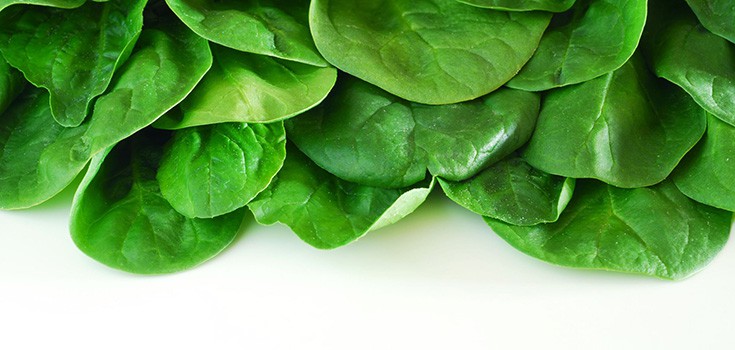Preventing Macular Degeneration, Vision Loss with Spinach

Approximately 1.75 million individuals in the United States suffer from macular degeneration—the leading cause of blindness in older adults. As the population ages, the prevalence of this disorder is going to grow and with that, treatment and prevention methods need to keep pace. In an effort to stay ahead of the curve, scientists are suggesting that including spinach in your diet could protect your eyes from the changes that cause macular degeneration.
The disorder is caused by a “progressive deterioration of a region that nourishes the retina, known as the retinal pigment epithelium (RPE).” This deterioration causes the retina itself to deteriorate and leads to difficulty focuses and, in the worst cases, blindness. Keeping the RPE healthy, therefore, can reduce the risk of macular degeneration. This is where spinach comes in.
Spinach contains lutein – a compound that combines with zeaxanthin within the body to create a macular pigment—an oily, yellow substance that coats the retina. This pigment nourishes the retina and prevents deterioration common in macular degeneration.
Lutein also protects the eyes from free radical damage by helping filter out damaging blue light and ultraviolet light.
One study, a 10-year clinical trial from the National Eye Institute, found that antioxidants themselves could reduce the progression of macular degeneration by 28% over a five year period. Another found that just three servings of spinach per week could reduce the risk of macular degeneration by 43%.
Spinach contains plentiful antioxidants and the ingredients needed to create macular pigment. Research is underway to draw causation between foods rich in these pigments and reduced risk. While connections have been made, actual causation has yet to be verified.
In the meantime, however, the connections between foods like spinach and vision health are hard to ignore. And getting three servings of spinach each week is far from difficult.
If you eat three meals a day, that’s 21 lunches and 21 dinners each week. Certainly at least three of these could be a large salad with mixed greens including spinach and all sorts of other raw vegetables. Bell peppers, carrots, and sprouts can all be added to make your meal a healthful one.
Here are a few other compounds and food to consume to prevent macular degeneration and vision loss.
Additional Sources:

well, not only that it makes Pop-Eye strong or rather our muscles strong it can also give us good vision. great, yeah?
How is 3 meals a day 21 lunches and 21 dinners a week? Last time I checked that would be 7 lunches and 7 dinners a week! That's 21 meals per WEEK including breakfast! Of course, spinach could always be added to an omelett a week, and to a salad and to a smoothie, and that wouldn't even count a regular dinner or lunch meal. Spinach is wonderful, and it's amazing how it blends in a smoothie so that you can't taste it, even if you use a lot.
I'm wondering if it might also help glaucoma, if it does all this for macular degeneration.
Having problems with your vision ? The following is good to know :
1) Eat fresh non treated spinach … if it comes out of a can … through it away immediatly ! They contain harmful substances that kill beneficial bacterias and disrupts hormones
2) Add myrtilles to your diet and all karoten rich vegies & berries
3) Make Basil sauce and serve it with your favorite pastas ( it will help rid you of thoses toxins that demineralise you